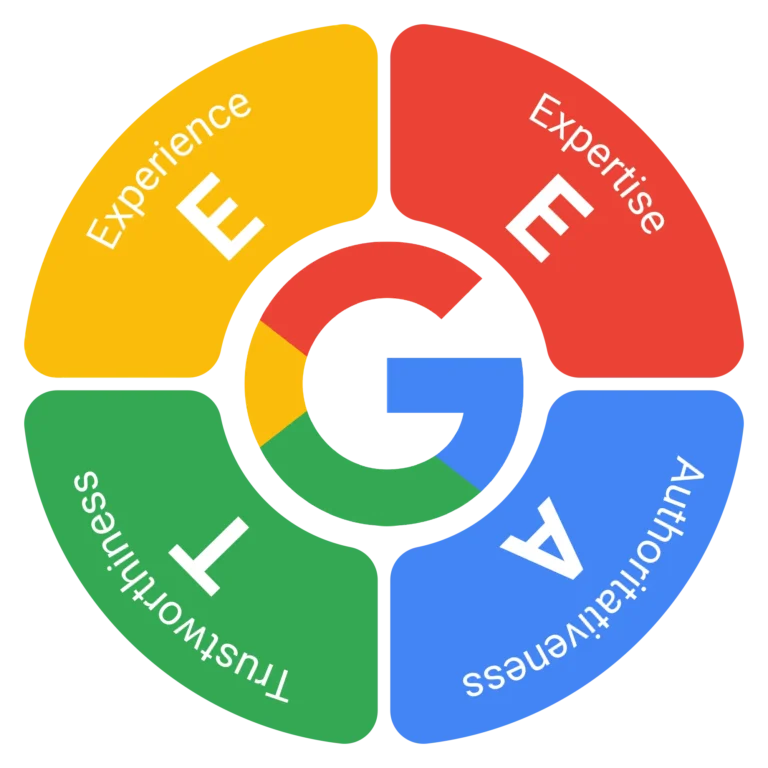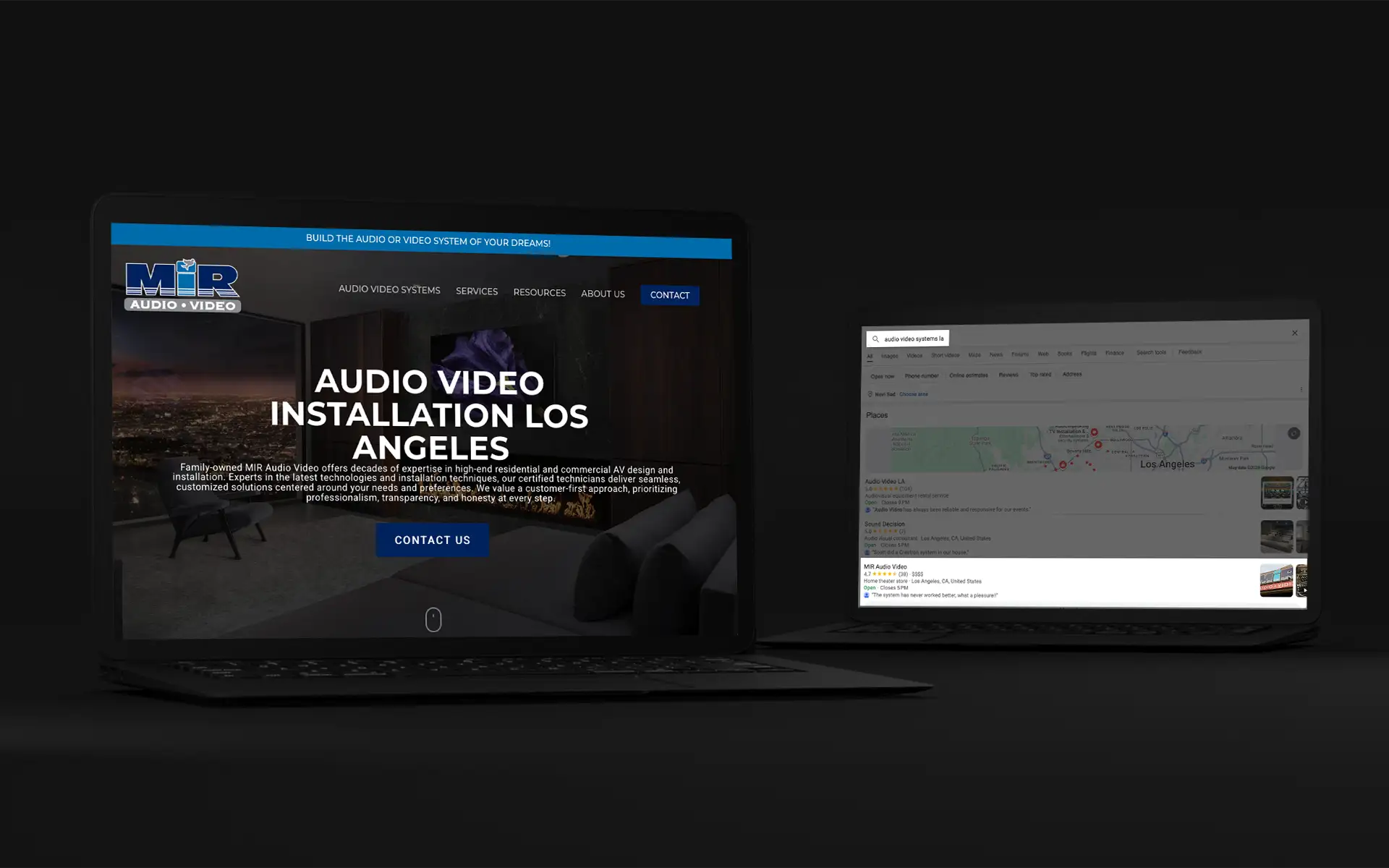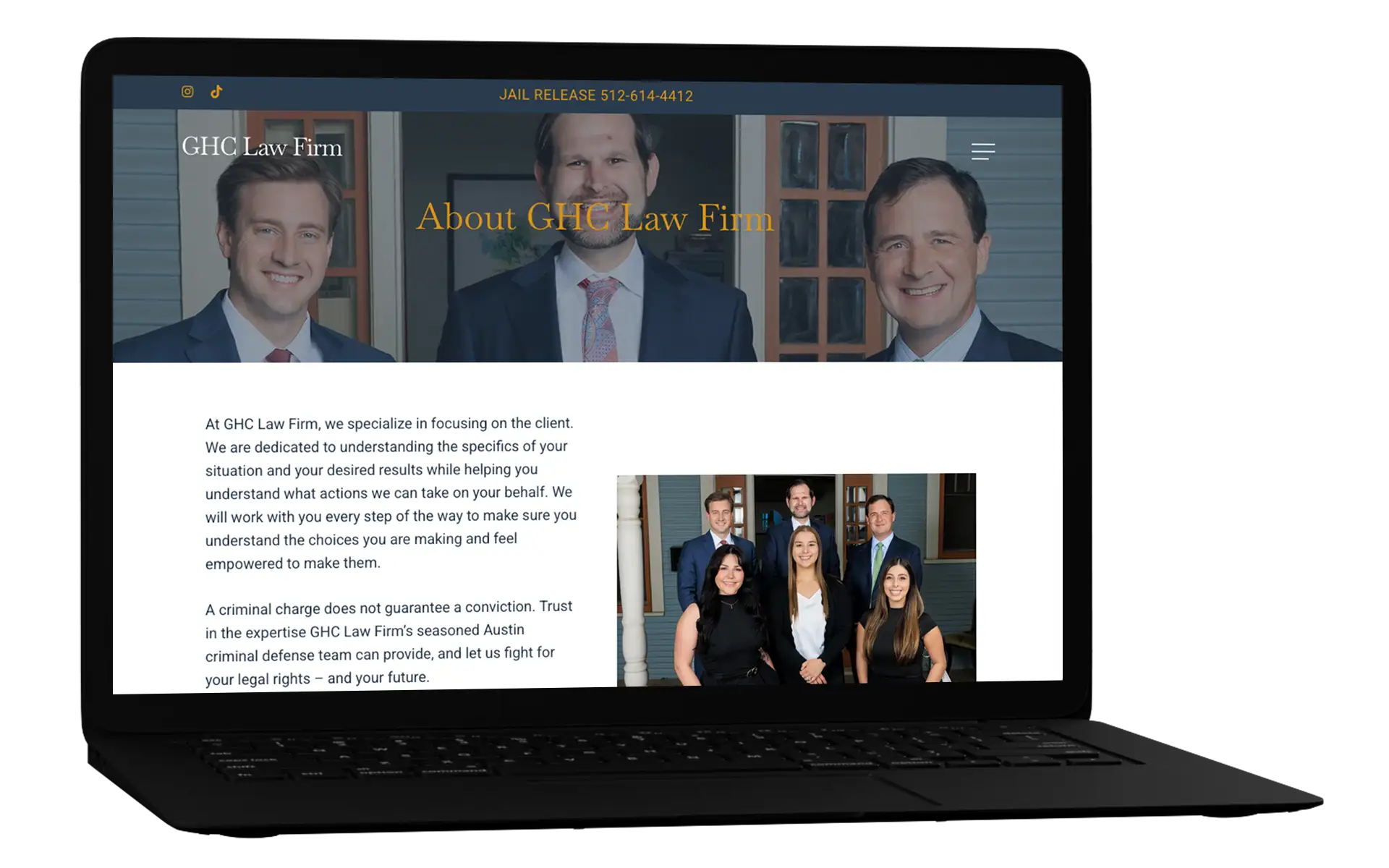
There are numerous factors that influence how Google ranks content, but few are as important as E-E-A-T: Experience, Expertise, Authoritativeness, and Trustworthiness. These four pillars are central to Google’s Search Quality Rater Guidelines and the recent Helpful Content Update. Although not directly influencing search engine ranking results, Google’s E-E-A-T guidelines play a crucial role in determining how content is evaluated for relevance and reliability.
On their website, the Google E-E-A-T guidelines are described as “what are used by our search raters to help evaluate the performance of our various search ranking systems, and they don’t directly influence ranking. They can also be useful to creators seeking to understand how to self-assess their own content to be successful in Google Search.”
Essentially, these guidelines prioritize people-first content over SEO-first content, a trend that is becoming increasingly important as the volume of online content continues to grow. As Google explains, “People-first content creators focus on creating satisfying content, while also utilizing E-E-A-T principles to ensure they’re producing trustworthy and helpful information.”
For businesses, this means that a solid content strategy should transcend targeted keywords to also encompass credibility, which fosters trust. And it matters: according to Google’s own guidelines, trust is the “most important member of the E-E-A-T family.” So, by Google’s standards, if your content doesn’t inspire confidence, then it’s not likely to rank as well in search results.
In this blog, we’re breaking down Experience, Expertise, Authority, and Trust, why they matter for SEO, actionable tips for improving your EEAT score, and more.
What is E-E-A-T?

E-A-T, or Expertise, Authoritativeness, and Trustworthiness, was incorporated into Google’s Search Quality Rater Guidelines in 2014 to help quality raters (yes, real humans) evaluate if content was genuinely helpful and credible. The introduction was in response to the rise of low-quality content farms publishing keyword-stuffed copy, as well as a wave of content supporting misinformation. Using E-A-T, content quality raters rewarded content that was actually accurate, useful, and written by individuals with relevant experience in the topic.
In 2022, the Google E-E-A-T guidelines underwent an update, with an additional “E” added, i.e., Experience. This pillar assesses the publisher’s firsthand knowledge and personal insight regarding the content topic. In today’s vast digital landscape, it can be challenging to determine if content is accurate and authentic. So, Google is trying to help users find the most helpful, useful, and accurate content by evaluating the content creator’s experience with the subject matter.
Why E-E-A-T Matters for SEO in 2025
At its core, Google’s mission is to help people find the information they need quickly, easily, and reliably. The official line is that Google aims “to organize the world’s information and make it universally accessible and useful.” That idea has shaped how the search engine works since the beginning. Whether someone is looking for health advice, product reviews, or how-to videos, Google’s goal is to connect them with content that’s the most relevant, trustworthy, and easy to understand. For this reason, every update to the algorithm, including E-E-A-T and the more recent Helpful Content Update, is designed to support that mission.
In the case of EEAT, trustworthiness is the key point here. When deciding both the search results and their order, Google looks beyond the words and also examines the author or source’s credibility (among other things). This is especially true for content that can impact an individual’s financial stability, health, safety, or well-being.
Breaking Down the Four Elements of E-E-A-T
Gaining a better understanding of the Google E-E-A-T guidelines can help brands create quality content that aligns with Google’s ranking parameters. So, let’s break down how each letter affects the EEAT score.
Experience – Showing First-Hand Knowledge
Here is what Google’s Search Quality Rater guidelines have to say about “experience” in the E-E-A-T playbook: “Consider the extent to which the content creator has the necessary first-hand or life experience for the topic. Many types of pages are trustworthy and achieve their purpose well when created by people with a wealth of experience.”
For example, when purchasing a product, such as a vacuum cleaner, a buyer will likely be drawn to the brand that has numerous reviews from users who report their positive experiences with the device. Therefore, experience in terms of EEAT encompasses first-hand experience with the subject matter, which allows content creators to provide advice based on first-hand usage, authentic insights, and verified opinions.
Expertise – Proving Subject Matter Expertise
When Google talks about “expertise,” it’s really asking: does the person behind this content know what they’re talking about? That could mean formal credentials, like a license or degree, but it doesn’t have to. A plumber with 20 years on the job or a chef who’s spent a lifetime in kitchens can show just as much expertise through experience. With expertise, Google is looking for signs that the creator has genuine knowledge of the topic, not just repeating what’s already out there. Whether it’s technical advice, health information, or even a product review, the more grounded and informed the content feels, the better.
For example, online author bios are great for demonstrating expertise, and Google recognizes this. An author bio tells the reader (and Google raters) that the person writing the content has genuine topic knowledge. This topic knowledge is especially important for subject matter related to health, finance, and well-being.
Authoritativeness – Building Reputation & Recognition
Google’s Search Quality Rate Guidelines take into account the reputation of the individual, website, or organization behind the content, making topic authority a significant SEO factor. The more a person or source is widely recognized as a go-to authority on the topic, the higher the authoritativeness.
One way that Google measures authority is by noting backlinks, i.e., links to your content from other websites. For example, if a respected website in your field or area of expertise links back to your content, it’s a strong signal that you are doing something right and offering authority on the subject matter. Other indicators of authoritativeness include media mentions, guest posting, and LinkedIn activity, i.e., posting insights and being active in your niche.
Trustworthiness – Why Trust Signals Matter
Lastly, but by no means least, is Trustworthiness. Google’s Search Quality Rater Guidelines describe trustworthiness as the most important factor in evaluating page quality. While the guidelines don’t offer a concise definition, they emphasize that: “Trust is the most important member of the E-E-A-T family because untrustworthy pages have low E-E-A-T no matter how Experienced, Expert, or Authoritative they may seem.”
So, how does Google measure a page’s trustworthiness? The Google E-E-A-T guidelines ask raters to look at high trust signals like:
- Clear sources and references
- Author transparency (e.g., real names, bios, credentials)
- Accreditations where they apply
- Secure websites (HTTPS)
- Minimal or no misleading or deceptive content
- Accurate and honest claims
How to Improve Your E-E-A-T Score (Actionable Tips)

Hopefully, this crash course on Google EEAT has cleared up any confusion about its meaning and significance. The next step is to ensure your digital marketing efforts incorporate EEAT-approved content creation, providing Google with the signals it’s looking for while building trust with your audience.
Publish Detailed Author Bios & Credentials
Adding author BIOs and credentials to published works is a great first step. Including this information is an easy way to verify your subject matter authority and build trust with readers (and Google’s quality raters). Details can include any information related to the author’s knowledge of the subject matter, such as degrees, relevant qualifications, certifications, or professional experience.
Add First-Hand Case Studies, Data & Research
Data-driven content is highly valuable. Including verifiable data, research citations, and case studies all check critical boxes with E-E-A-T by showcasing authority, experience, and expertise. Take case studies, for example. They demonstrate real experience and results, which build credibility and trust for your brand and authority. Verifiable (cited or linked) data and research serve the same purpose, providing accurate, proven information that supports the trustworthiness of the content.
Get High-Quality Backlinks & Mentions
High-quality backlinks are SEO gold, which is probably why they are the most difficult for smaller brands to obtain. However, with patience and persistence, backlinking with respected sites in your industry is possible. A good start is to write expert blog posts for other well-respected sites in your industry.
Strengthen Your Site’s Trust Signals
There are several strategies that can enhance your website’s trustworthiness. The easiest is to ensure it’s secure, which is indicated by an HTTPS in a website’s URL. Other tactics include transparently displaying creators’ identities and information with author bios, as well as offering background information on the About page. Also, ensure the content is high-quality and not “spammy” by writing original content with a personal tone and citing sources where necessary. Finally, provide a contact us page that’s easy to find and include a privacy policy and terms of service, if applicable.
Real Example of Strong E-E-A-T in Action
We know that seeing is believing, so let’s examine a website that is successfully hitting the notes of Google E-E-A-T. From the moment users land on this Texas law firm’s home page, trust-building begins with a secure URL, badges that signal authority, and a prominent button to the Contact Us page.

Next up is the About Us page, which features pictures of the legal team. On this page, users also find individual bios on each of the attorneys, including additional pictures. Each bio comprehensively details experience, credentials, and authority in their area of practice.

And finally, they’ve done an excellent job documenting their experience, expertise, and authority with a Press page where users can find news interviews and articles that underscore their subject matter authority.
In all, this law firm’s website is hitting numerous Google E-E-A-T notes, including:
- Experience: The website features comprehensive BIOs on the principal attorneys, with pictures, that detail their law experience and industry recognition.
- Expertise: Recognition badges, detailed bios for each attorney, and news interviews on the Press page showcase experience
- Authority: The Resources page and Press page content demonstrate their extensive knowledge and experience in their field of law.
- Trust: The website is secure, and the articles in the Resources section include citations where applicable. Overall, the content is personal and straightforward, clearly describing both the services offered and the caliber of attorneys.
Content is the best way for companies to engage online with users, from website copy to blogs and social posts to videos, etc. However, to work towards a company’s growth goals, it must adhere to the standards set by search engines. As far as Google is concerned, content that meets the EEAT criteria is more likely to be considered helpful and reliable by users and Google algorithms. This favoritism can translate to higher search engine result rankings and user interactions, improving online visibility.
So, bottom line, adhering to the Google EEAT guidelines to create high-quality content can help improve online visibility and user interactions. And in an ever-growing online world, visibility is critical to relevance and growth.
Drive Visibility With Customized Solutions
At Living Proof Creative, we deliver customized solutions designed to fuel online growth. We rely on data-driven decision-making to create digital campaigns that attract engagement while adhering to Google best practices. Ready to reach and convert more qualified customers?
Contact Us Today for a FREE SEO Audit!
FAQ - Google E-E-A-T
What does E-E-A-T mean in SEO?
EEAT are the search rater guidelines Google uses to help evaluate if its search ranking systems are providing helpful, relevant information. Google search engines will favor content that aligns with the principles of EEAT more than content that does not.
Is E-E-A-T a ranking factor?
EEAT is not a direct ranking factor in Google’s algorithm, but it helps content creators produce helpful, people-first content that aligns with what Google’s systems aim to reward, ultimately increasing the chances of better rankings.
Does E-E-A-T impact AI-generated content rankings?
Yes, Google’s E-E-A-T guidelines impact the ranking of AI-generated content in Google searches. Google prioritizes content that demonstrates strong E-E-A-T, regardless of whether it’s generated by AI or humans.





